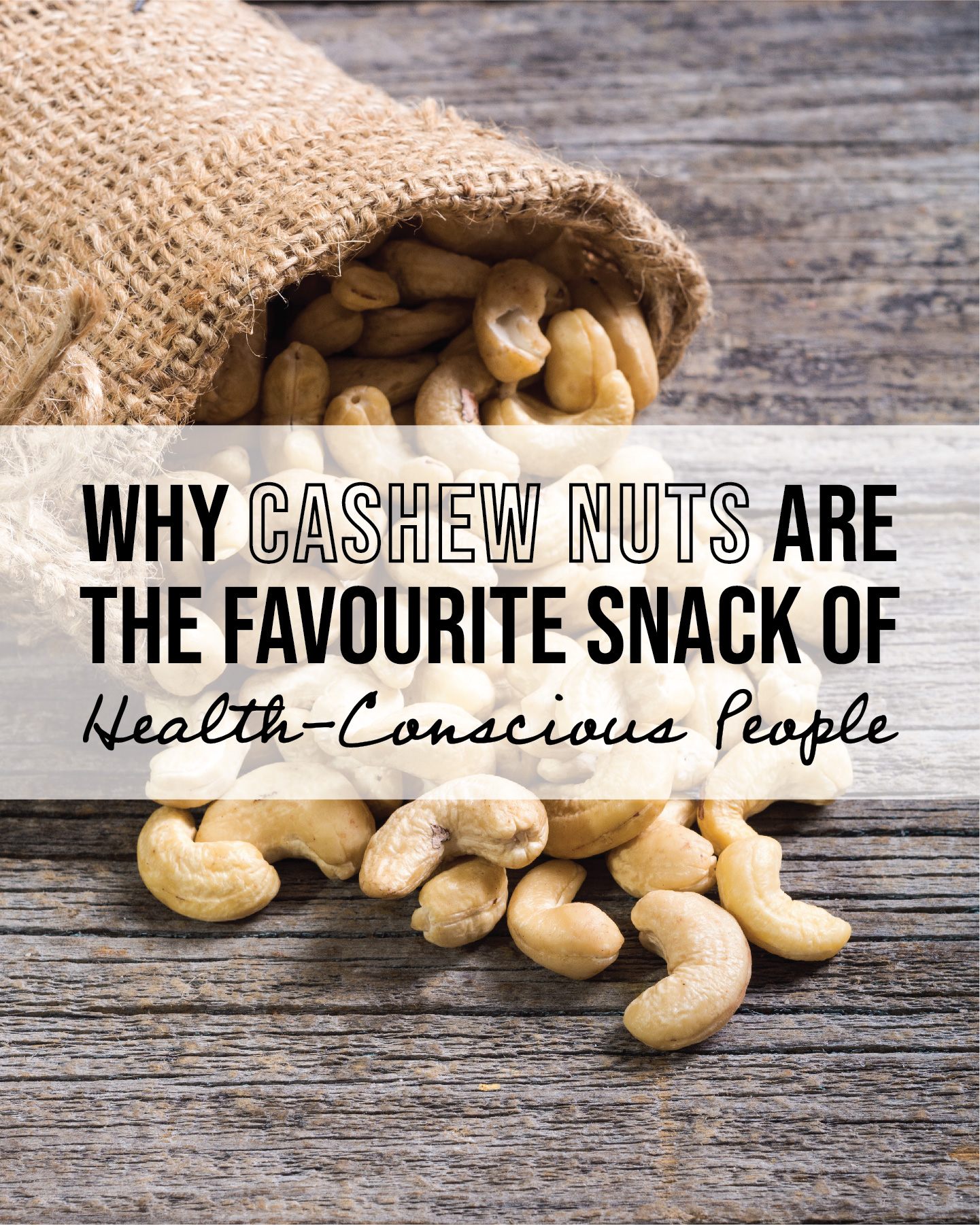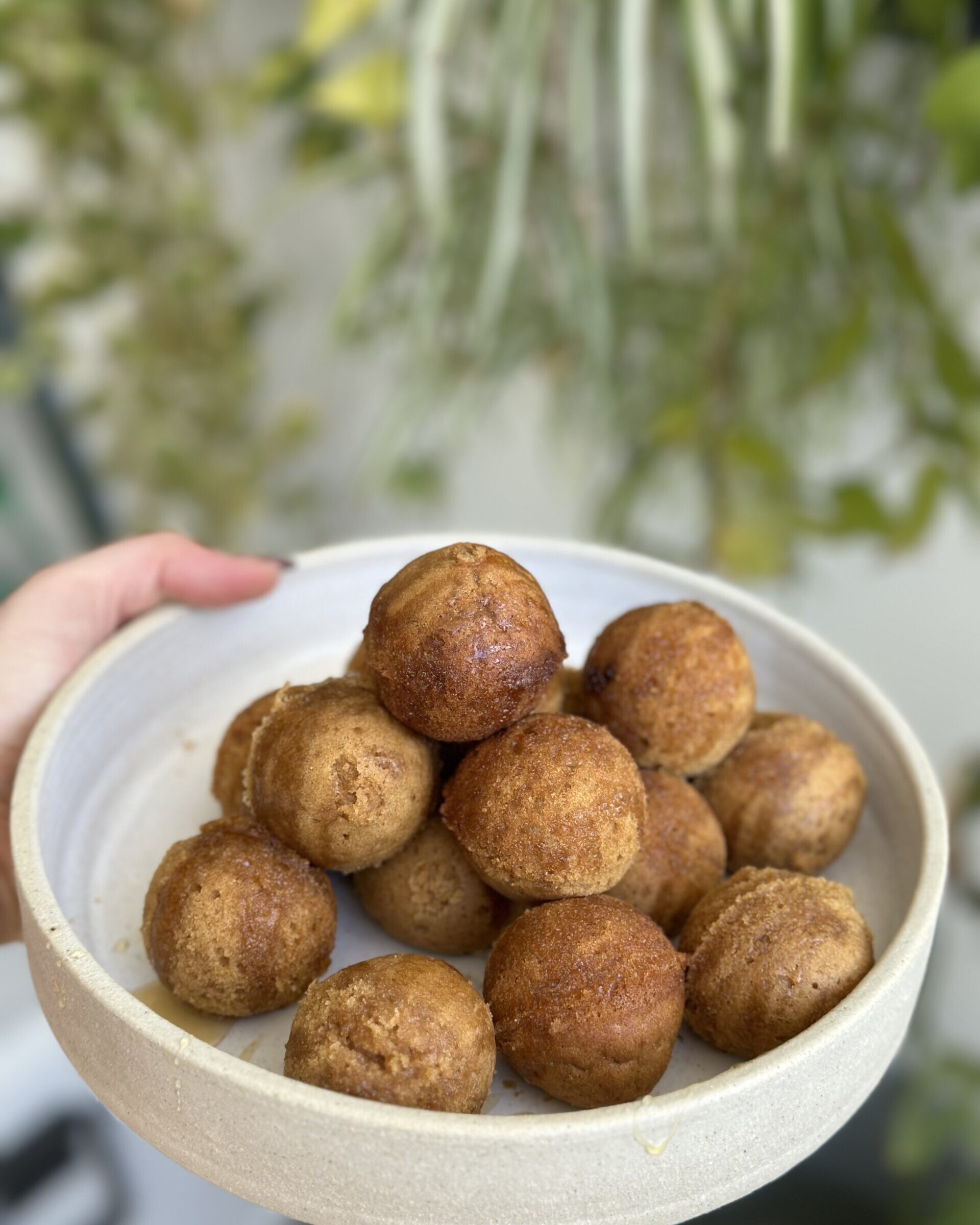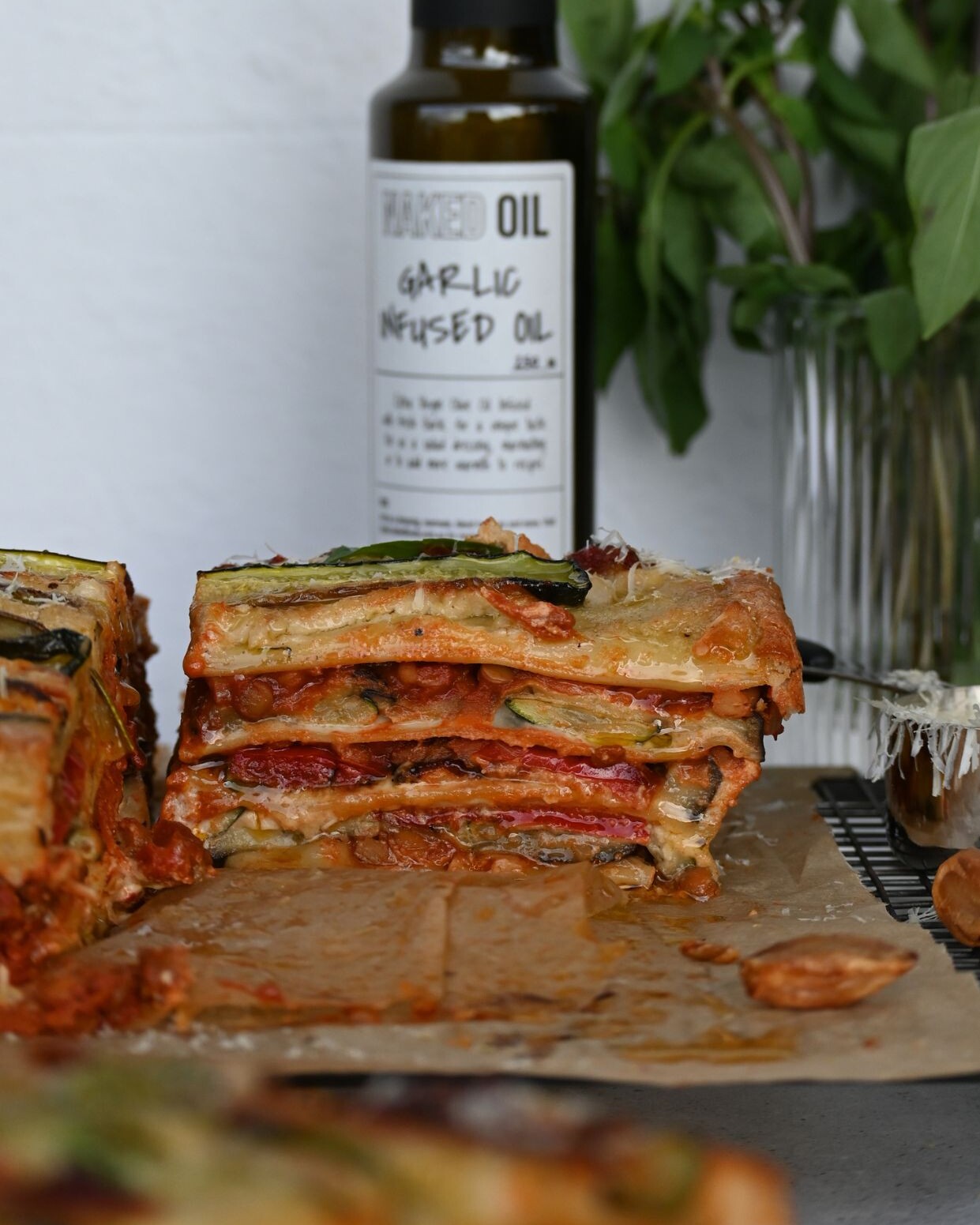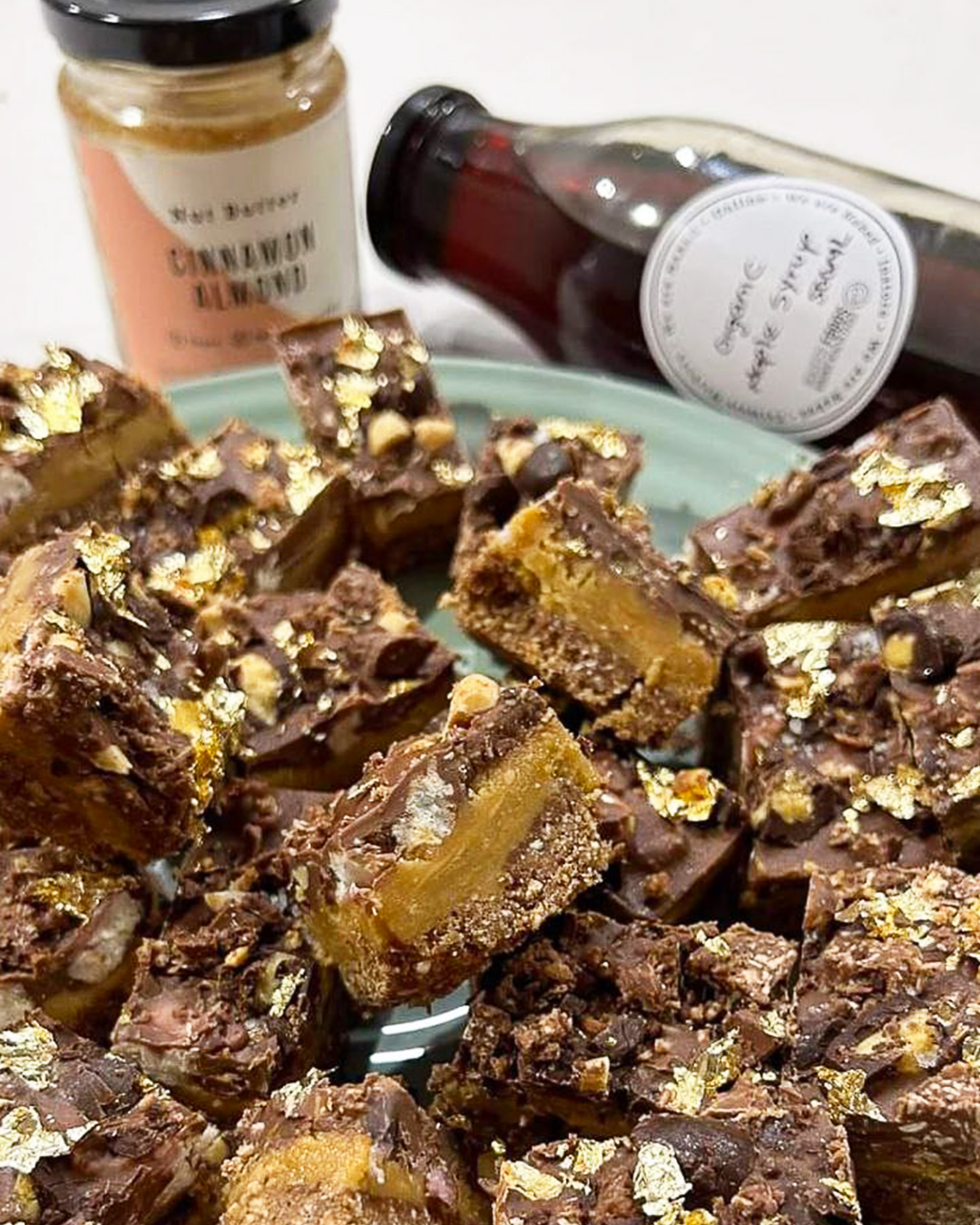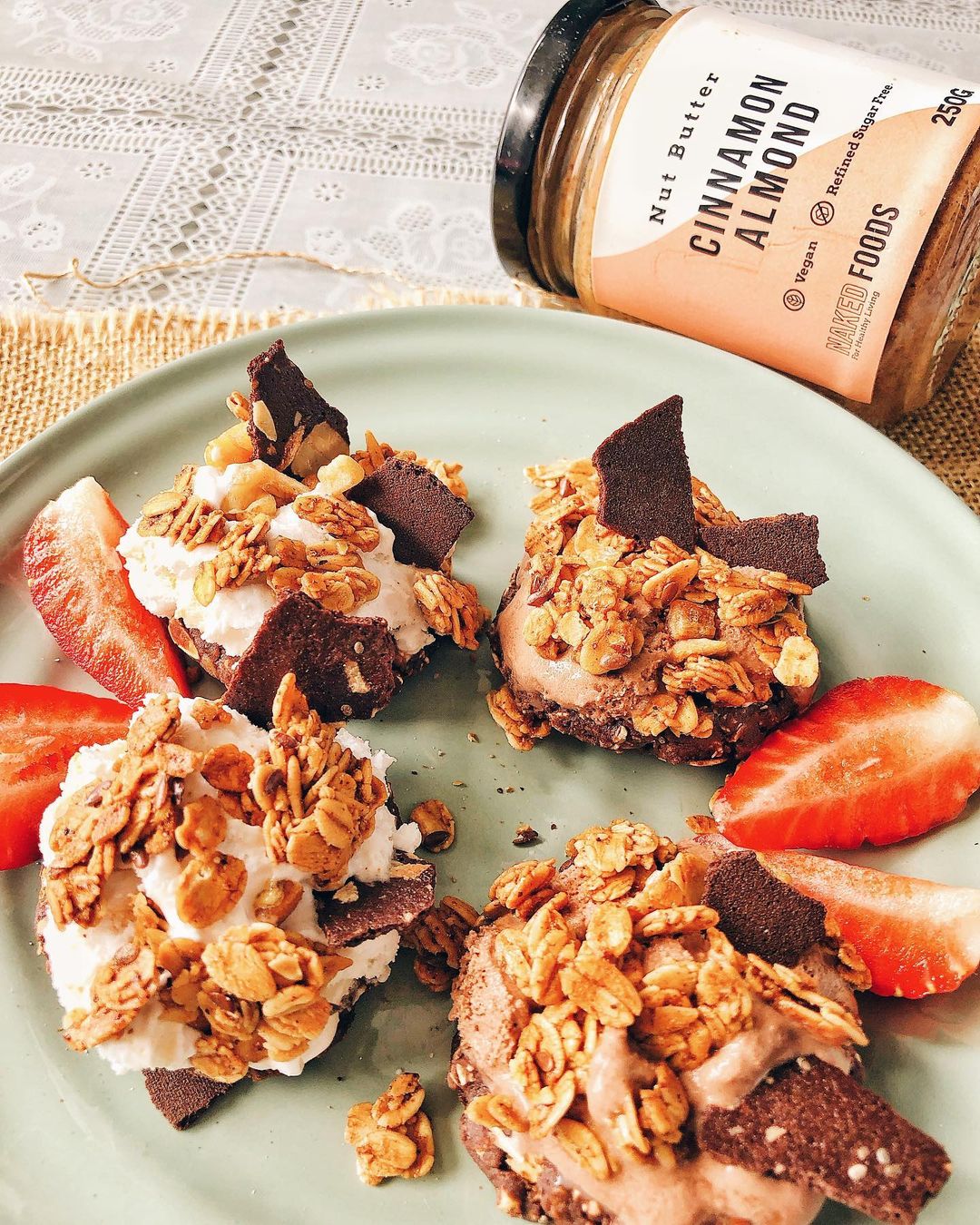Snack it, make it a topping, turn it into a sauce, sprinkle it on your salad—it’s hard not to love cashew.
The sweet, buttery taste of cashews make them one of the most favourite snacks in the world. But is that all that they can offer?
Here are some health benefits of cashew nuts that will convince you to stack supplies:
Helps Prevent Cardiovascular Diseases
As published in the British Journal of Nutrition, people who eat nuts more than 4 times a week have a 37% lower risk of coronary heart disease, heart attack, and stroke.
Cashews contain monounsaturated and polyunsaturated fatty acids which can lower cholesterol and triglyceride levels.
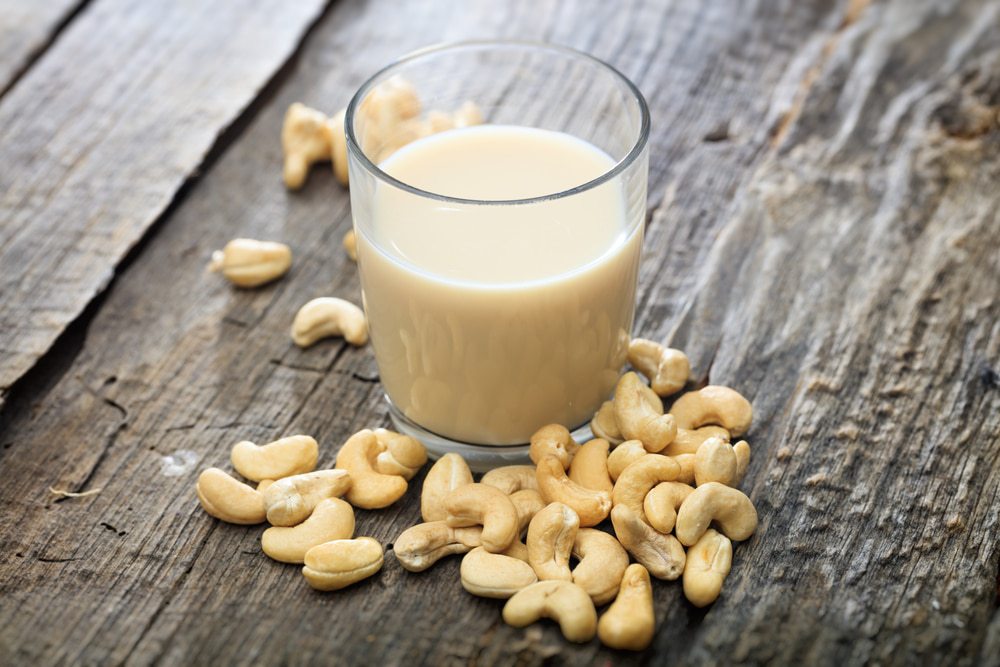
Helps in Weight Management
When trying to lose or maintain weight, it’s critical to be cautious with your snack options. Thankfully, cashews can be a tasty addition to a weight-conscious diet.
According to a study published in the National Library of Medicine, regular nut consumption is linked with higher energy use while the body is on rest.
“This only affirmed a 2004 study reported a higher incidence of weight gain with women who rarely eat nuts.”, as pointed out by David Taylor, a diet counsellor at Monkeyfoodz.
Helps Prevent Osteoporosis
One ounce of dry-roasted cashews is loaded with 74 mg of magnesium, a mineral needed for bone formation. Studies reveal that magnesium deficiency may contribute to insulin resistance.
The manganese content of cashews can also help prevent osteoporosis.
Cashew nuts are one of the few high-copper sources. Copper is essential in maintaining collagen and elastin, major structural components of bones, skin, and muscles. If your copper intake is low, the replacement of damaged tissues is slower.
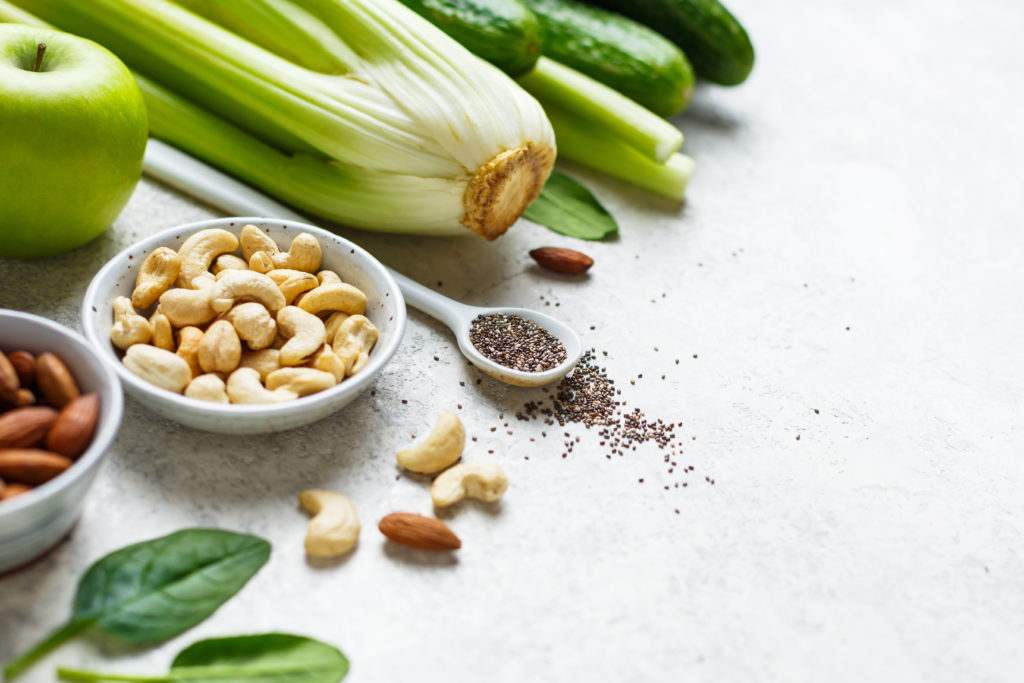
Reduces Risk of Having Gallstone
A research found out that frequent nut consumption may reduce cholecystectomy risk (surgical removal of the gallbladder). Over 20 years of documenting millions of people, it was noted that women who consumed more than 142 grams of nuts per week had a considerably lower risk of gallstone formation.
In over a million people documented over 20 years, women who consumed more than 5 ounces of nuts a week had a significantly lower risk of cholecystectomy than women who ate less than 1 ounce of nuts each week.
Protects the Eye
With all the screen time and pollution, we should do anything to protect our eyes. Cashew nuts contain a pigment called “zeaxanthin”, which has antioxidative properties and creates a protective layer over the retina. Even small quantities of zeaxanthin can help prevent age-related macular degeneration.

Delays Skin Ageing
The oil in cashew nuts is packed with antioxidants, phytochemicals, and proteins. These work together to protect the skin from the oxidative effects of stress, pollution, and unhealthy food and drinks. It’s also important to know that our cells constantly produce by-products that can be detrimental to skin health. Therefore, it’s advised to take a daily dose of anti-ageing food.
Get your stash of high-quality cashew nuts at Naked Foods! When sourcing organic products, we only purchase Australia Organic Certification (ACO) or NASAA (Australia and international organic certified) compliant suppliers. Check out our other offerings here.
Reference
- Kelly, J., & Sabaté, J. (2006). Nuts and coronary heart disease: an epidemiological perspective. British Journal of Nutrition
- Mattes, R., & Dreher, M. (2010). Nuts and healthy body weight maintenance mechanisms. The Journal of Nutrition.
- Saltman, P., & Strause, L. (1993). The role of trace minerals in osteoporosis. Journal of the American College of Nutrition.
- Tsai, C., Leitzmann, M., Hu, F., Willett, W., & Giovannucci, E. (2004). Frequent nut consumption and decreased risk of cholecystectomy in women. The American Journal Of Clinical Nutrition
- Shah, K. (2016). 5 Benefits of eating cashew nuts every day.
About The Author: Kayla Cox
Kayla Cox is an experienced freelance writer. She is an avid yogini and enjoys writing about trends and developments in all areas related to health and wellbeing. In 2015, Kayla weighed 85kg and needed to lose 20 pounds or risk getting diabetes.
She lost the weight, not to be “fit’ but to be healthy. In order to understand the essence of health, she conducted extensive research and interviews with health practitioners. Writing about her journey, she helps other people who, like her are in need of a lifestyle change.

